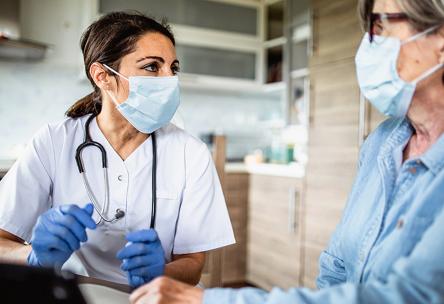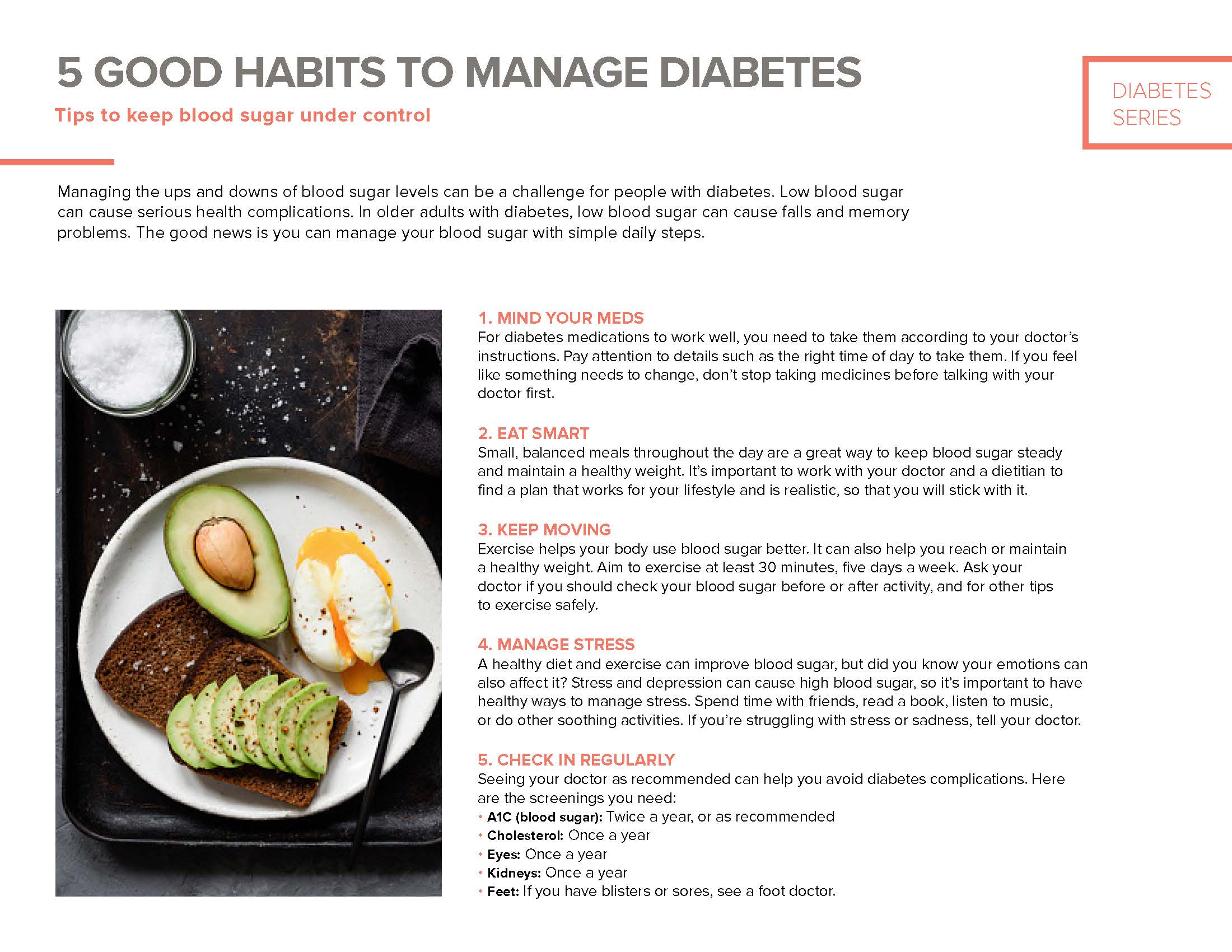How long will you wait for a shot? What are the side effects like? Here’s the essential info you need

As states begin the process of rolling out the new COVID-19 vaccines, many of us are feeling a glimmer of hope for the first time in months. We’re finally starting on the road back to normal life.
For people with diabetes, a vaccine is especially good news, because COVID-19 can be especially dangerous for them. In fact, having diabetes makes a COVID-19 patient three times more likely to experience severe illness or require hospitalization, according to researchers at Vanderbilt University Medical Center. The reasons are unclear, but a few theories exist.
“When someone gets the virus, their body attempts to fight it with an inflammatory response,” says Peter Arvan, M.D., Ph.D., chief of metabolism, endocrinology, and diabetes at Michigan Medicine. But that inflammatory response can cause problems of its own, so some patients with COVID-19 can
develop dangerous complications. Plus, diabetes often brings its own set of complications, such as high blood pressure, that also increase the risk of severe COVID-19.
This is why groups like JDRF, which advocates for people with type 1 diabetes, are urging the Centers for Disease Control and Prevention (CDC) to recommend priority vaccine access to diabetes patients. Ready to roll up your sleeve? Here are four things to know about the shots.
1. The Vaccines Are Safe.
The Food and Drug Administration (FDA) has determined that the two CDC-approved vaccines are effective and safe after more than 70,000 people participated in Phase 3 clinical trials. Although no trials looked specifically at people with diabetes who received a vaccine, Dr. Arvan says “there’s no chance” those people were not studied, “given the incidence of diabetes in the U.S. and the number of people in the trials.” Also, CDC data at press time reveals that more than 12 million Americans have received their first dose with very few serious adverse reactions.
It’s important to weigh the risk of getting infected with the coronavirus and becoming very sick — including possibly needing to be put on a ventilator — against any potential side effects of the vaccine. “The risk from getting the vaccine is so small, but the risk from getting the coronavirus if you have diabetes is quite large,” Dr. Arvan says.
2. You May Experience Side Effects.
The CDC notes that your COVID-19 shot, like any vaccine, may trigger these possible symptoms:
- pain and/or swelling where you received the injection
- chills
- headache
- fatigue
- fever
If you notice anything new after getting your shot, call your health care provider, Dr. Arvan says. What you’re experiencing may or may not be due to the vaccine. Your provider can determine this and will let you know if you should try any treatments, such as painkillers.
For some people, the side effects may feel like flu, the CDC indicates. If that happens to you, be sure to connect with your health care provider. If you lose your appetite, try eating smaller, more frequent meals; noodle soups and meal replacement shakes are good options. You’ll want to monitor your blood glucose closely — as often as every two hours, Dr. Arvan says. If your blood glucose level rises to 400 or higher or dips below 70 and you’re having trouble controlling it, call your provider right away.
The good news is that even if your side effects are unpleasant, they should go away within a few days. And remember: Many people report no symptoms after the shot at all.
3. When You Get the Vaccine Depends on a Few Factors.
Each state has its own plan for distributing the vaccine to residents. Most divide recipients into phases, based on three main criteria:
- Occupation. In most cases, health care personnel, first responders and essential workers in fields like education and food service will have access to the vaccine first, regardless of the other factors in this list.
- Health status. People with underlying health issues, including diabetes, heart conditions and cancer, will receive priority over healthier citizens. “Having a high risk of complications [from COVID-19] moves these patients into the top tier,” Dr. Arvan explains.
- Age. Adults 65 and older will receive the vaccine before younger people.
If you want to know which phase you’re in, talk to your provider. Also, you can get the latest information about the Arkansas Department of Health's vaccination plan on its website.
4. You Need Two Doses for Maximum Protection.
Whichever vaccine you receive — the Moderna or the Pfizer/BioNTech — you will need two doses, given a few weeks apart. Be sure you receive both shots as recommended.
Also, if you have any illness, including coronavirus, you should wait to get your vaccine until you are healthy again. “You won’t mount a good immune response,” Dr. Arvan explains. The same goes if you had COVID-19 in the past and received monoclonal antibodies. “That [treatment] confounds the ability to make your own immune response when you get the vaccine,” he adds. Your provider will let you know how long you should wait before getting your shot.
Once you get vaccinated, you’ll need to keep wearing a mask, washing your hands regularly, and practicing social distancing. It’s going to take at least several months for the nation to reach herd immunity, so keep up the good work. It will be worth it.

